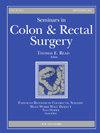Improving surgical outcomes for older adults with adoption of technological advances in comprehensive geriatric assessment
IF 0.5
Q4 SURGERY
引用次数: 0
Abstract
Frailty is a well-recognized predictor of poor surgical outcomes for older adults, yet effective measurements and interventions remain limited. Technological advances offer an opportunity to address this gap and improve surgical care for older adults. This paper reviews the background of frailty and comprehensive geriatric assessments in surgery, and how technological innovations can advance frailty measurement and intervention in surgical settings. We review two broad areas of technological advancement as applied to frailty in surgery: (1) Innovation in the use of electronic health records (EHR) using Artificial Intelligence (AI) and Machine Learning (ML), and (2) Novel uses for wearable sensors and mobile health (mHealth) applications. We explore the integration of AI and ML with EHR systems, which can surpass traditional comorbidity indices by providing comprehensive health assessments and enhancing prediction models. Innovations like the electronic Frailty Index (eFI) show promise in expanding the reach of frailty assessments and facilitating real-time screening. Additionally, wearable devices and mobile health (mHealth) applications offer new ways to monitor and improve physical activity, nutrition, and psychological well-being, supporting perioperative rehabilitation. While these technologies present challenges, such as the need for infrastructure, training, and data interoperability, they offer promising strategies to facilitate the assessment and management of frailty among surgical patients. Continued research and tailored implementation strategies will be essential to fully realize the potential of these advancements in improving surgical outcomes for frail older adults.
采用先进技术进行老年综合评估,改善老年人的手术效果
衰弱是公认的老年人手术效果不佳的预测因素,但有效的测量和干预措施仍然有限。技术进步为弥补这一不足、改善老年人外科护理提供了机会。本文回顾了虚弱的背景和外科手术中的老年综合评估,以及技术创新如何推进外科手术中的虚弱测量和干预。我们回顾了应用于外科虚弱的两大技术进步领域:(1) 使用人工智能(AI)和机器学习(ML)的电子健康记录(EHR)的使用创新,以及 (2) 可穿戴传感器和移动医疗(mHealth)应用的新用途。我们探索将人工智能和 ML 与电子病历系统集成,通过提供全面的健康评估和增强预测模型,超越传统的合并症指数。电子虚弱指数(eFI)等创新技术有望扩大虚弱评估的覆盖范围并促进实时筛查。此外,可穿戴设备和移动医疗(mHealth)应用为监测和改善体力活动、营养和心理健康提供了新的方法,为围术期康复提供了支持。虽然这些技术存在一些挑战,如需要基础设施、培训和数据互操作性,但它们为促进手术患者体弱状况的评估和管理提供了前景广阔的策略。要想充分发挥这些先进技术在改善体弱老年人手术效果方面的潜力,就必须继续开展研究并制定有针对性的实施策略。
本文章由计算机程序翻译,如有差异,请以英文原文为准。
求助全文
约1分钟内获得全文
求助全文
来源期刊

Seminars in Colon and Rectal Surgery
SURGERY-
CiteScore
0.60
自引率
0.00%
发文量
43
期刊介绍:
Seminars in Colon and Rectal Surgery offers a comprehensive and coordinated review of a single, timely topic related to the diagnosis and treatment of proctologic diseases. Each issue is an organized compendium of practical information that serves as a lasting reference for colorectal surgeons, general surgeons, surgeons in training and their colleagues in medicine with an interest in colorectal disorders.
 求助内容:
求助内容: 应助结果提醒方式:
应助结果提醒方式:


